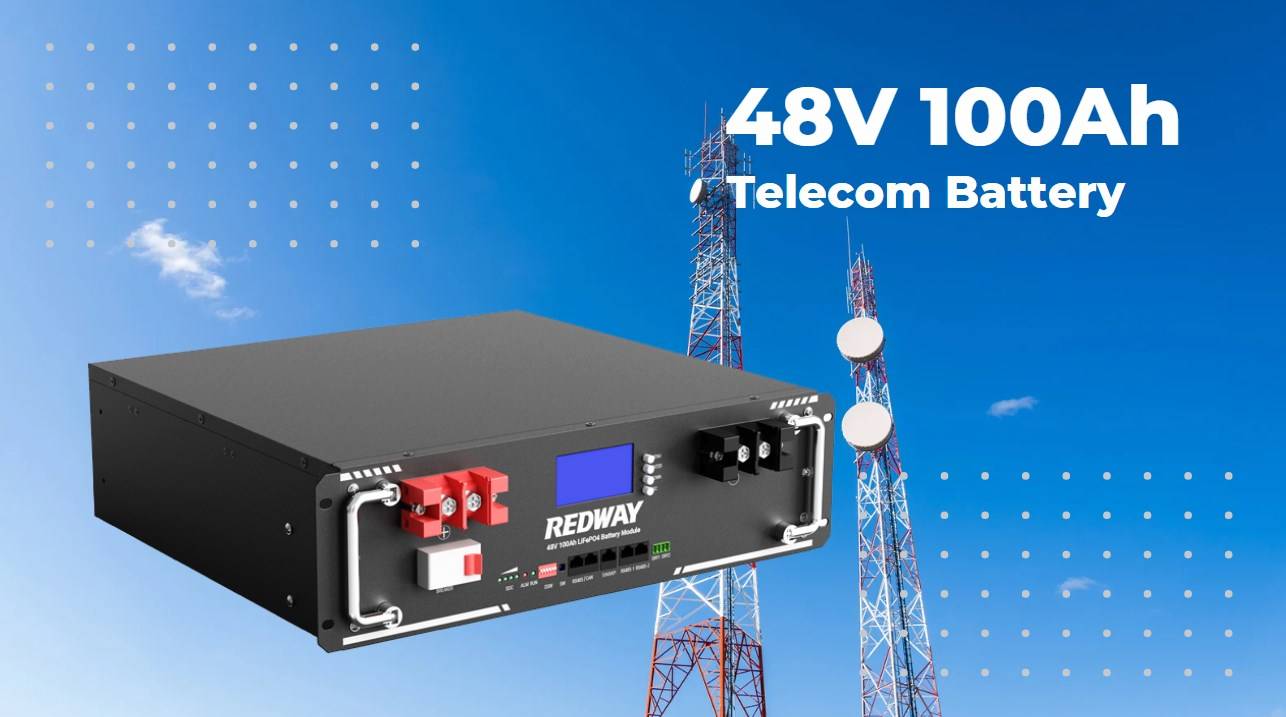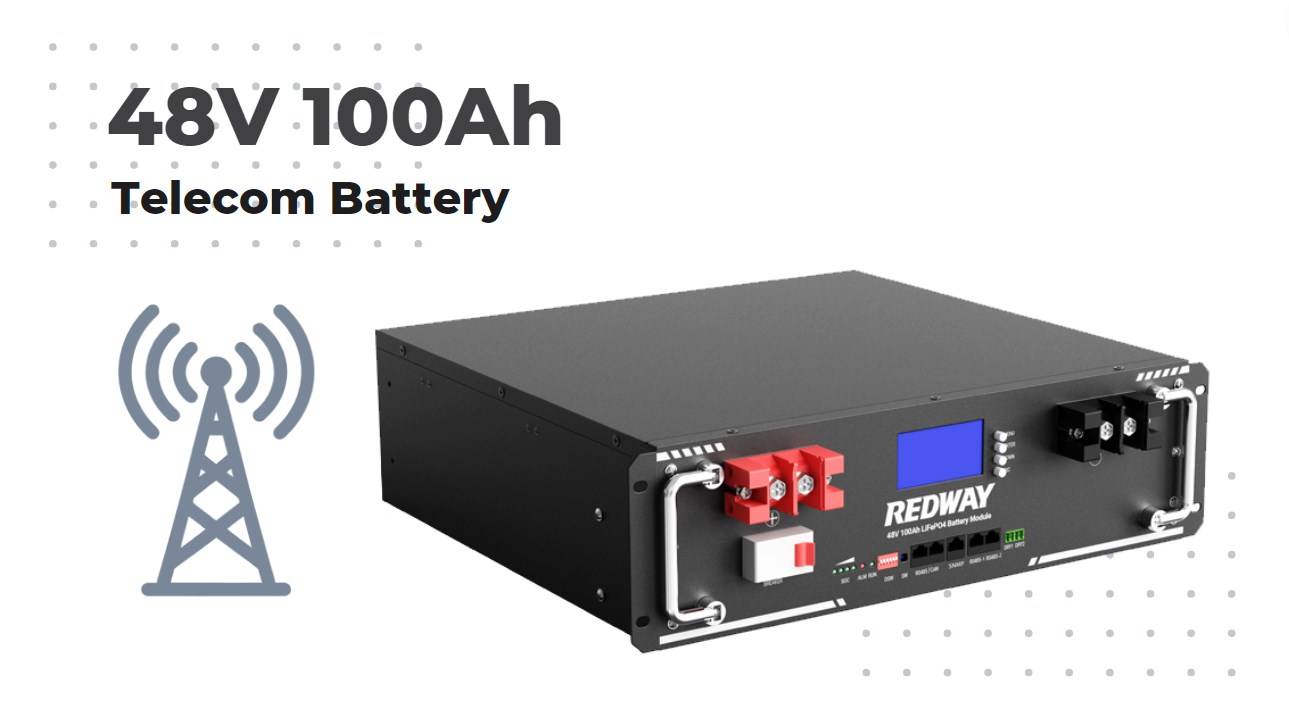- Lithium Golf Cart Battery
- Forklift Lithium Battery
-
48V
- 48V 210Ah
- 48V 300Ah
- 48V 420Ah (949 x 349 x 569 mm)
- 48V 420Ah (950 x 421 x 450 mm)
- 48V 456Ah
- 48V 460Ah (830 x 630 x 590 mm)
- 48V 460Ah (950 x 421 x 450 mm)
- 48V 460Ah (800 x 630 x 600 mm)
- 48V 460Ah (820 x 660 x 470 mm)
- 48V 500Ah
- 48V 560Ah (810 x 630 x 600 mm)
- 48V 560Ah (950 x 592 x 450 mm)
- 48V 600Ah
- 48V 630Ah
-
48V
- 12V Lithium Battery
12V 150Ah Lithium RV Battery
Bluetooth App | BCI Group 31
LiFePO4 Lithium
Discharge Temperature -20°C ~ 65°C
Fast Charger 14.6V 50A
Solar MPPT Charging - 24V Lithium Battery
- 36V Lithium Battery
- 48V Lithium Battery
-
48V LiFePO4 Battery
- 48V 50Ah
- 48V 50Ah (for Golf Carts)
- 48V 60Ah (8D)
- 48V 100Ah (8D)
- 48V 100Ah
- 48V 100Ah (Discharge 100A for Golf Carts)
- 48V 100Ah (Discharge 150A for Golf Carts)
- 48V 100Ah (Discharge 200A for Golf Carts)
- 48V 150Ah (for Golf Carts)
- 48V 160Ah (Discharge 100A for Golf Carts)
- 48V 160Ah (Discharge 160A for Golf Carts)
-
48V LiFePO4 Battery
- 60V Lithium Battery
-
60V LiFePO4 Battery
- 60V 20Ah
- 60V 30Ah
- 60V 50Ah
- 60V 50Ah (Small Size / Side Terminal)
- 60V 100Ah (for Electric Motocycle, Electric Scooter, LSV, AGV)
- 60V 100Ah (for Forklift, AGV, Electric Scooter, Sweeper)
- 60V 150Ah (E-Motocycle / E-Scooter / E-Tricycle / Tour LSV)
- 60V 200Ah (for Forklift, AGV, Electric Scooter, Sweeper)
-
60V LiFePO4 Battery
- 72V~96V Lithium Battery
- Rack-mounted Lithium Battery
- E-Bike Battery
- All-in-One Home-ESS
- Wall-mount Battery ESS
-
Home-ESS Lithium Battery PowerWall
- 24V 100Ah 2.4kWh PW24100-S PowerWall
- 48V 50Ah 2.4kWh PW4850-S PowerWall
- 48V 50Ah 2.56kWh PW5150-S PowerWall
- 48V 100Ah 5.12kWh PW51100-F PowerWall (IP65)
- 48V 100Ah 5.12kWh PW51100-S PowerWall
- 48V 100Ah 5.12kWh PW51100-H PowerWall
- 48V 200Ah 10kWh PW51200-H PowerWall
- 48V 300Ah 15kWh PW51300-H PowerWall
PowerWall 51.2V 100Ah LiFePO4 Lithium Battery
Highly popular in Asia and Eastern Europe.
CE Certification | Home-ESS -
Home-ESS Lithium Battery PowerWall
- Portable Power Stations
Benefits and Applications of 48V Telecom Batteries

Telecommunications are the backbone of our modern world. As we rely more on connectivity, the need for robust power solutions becomes critical. Enter 48V telecom batteries—an unsung hero in this landscape. These batteries are designed to support a range of applications while offering impressive efficiency and longevity.
Why should you care about 48V telecom batteries? They’re not just another piece of technology; they represent a paradigm shift in how we think about energy storage and management in telecommunications. Whether it’s powering remote cell towers or supporting renewable energy systems, their versatility is unmatched.
Join us as we explore the myriad benefits these batteries bring to various industries and uncover why they might be just what your organization needs to stay ahead in an ever-evolving digital age.
Advantages of using 48V Telecom Batteries
48V Telecom Batteries bring a host of advantages that make them essential for modern power solutions. One significant benefit is their increased efficiency, which translates into cost savings over time. These batteries often require less energy to operate effectively, allowing organizations to reduce their operational expenses.
Another key advantage is higher power density. This means they can store more energy in a smaller footprint compared to traditional battery systems. Such compactness is invaluable in space-constrained environments like telecommunications facilities.
Additionally, these batteries boast a longer lifespan than many alternatives. With improved cycling capabilities and reduced maintenance needs, users can enjoy reliable performance without frequent replacements or repairs. The longevity of 48V telecom batteries enhances overall system reliability and reduces downtime, making them an attractive option for various applications in the industry.
A. Increased Efficiency and Cost Savings
48V telecom batteries are designed to enhance efficiency, making them a smart choice for various applications. Their ability to deliver consistent power means that systems run smoothly without interruptions.
When it comes to cost savings, these batteries shine brightly. They require less energy input compared to traditional battery systems while providing the same output levels. This efficient operation translates directly into lower electricity bills and reduced operational expenses.
Moreover, their compact design allows for easier integration into existing infrastructure without significant modifications or additional costs. The minimized footprint also frees up valuable space in critical environments.
With advancements in technology, many 48V telecom batteries come equipped with smart management features. These innovations optimize charging cycles and monitor performance closely, leading to even more savings over time as they prolong overall system lifespan and reliability.
B. Higher Power Density
Higher power density is a standout feature of 48V telecom batteries. This characteristic allows these batteries to store more energy in a compact size. Users benefit from an increased amount of power without needing bulky equipment.
This efficiency translates into smaller and lighter battery systems, making installation easier. Telecommunication infrastructures often require significant amounts of space. The high power density helps mitigate this issue and enhances overall design flexibility.
Moreover, the ability to deliver substantial energy without compromising on size means better performance for critical applications. Whether powering base stations or backup systems, 48V telecom batteries ensure that operations run smoothly.
With advancements in battery technology, manufacturers are continually improving power density levels. As a result, businesses can expect even greater performance in the future while maintaining their focus on space-saving solutions.
C. Longer Lifespan
One of the standout features of 48V telecom batteries is their impressive lifespan. These batteries are designed to endure rigorous usage over extended periods, which is crucial for telecommunications.
With advanced technology and engineering, they often outlast traditional battery models. Users can expect years of reliable performance without frequent replacements.
This longevity translates into lower operational costs. Fewer replacements mean reduced labor and disposal expenses, making them a smart investment in the long run.
Additionally, longer-lasting batteries contribute to sustainability efforts. By minimizing waste and resource consumption associated with production and disposal, these systems promote an eco-friendlier approach within the industry.
In environments where uptime is critical, such as telecommunication hubs and data centers, having a dependable power source for many years offers peace of mind to operators and service providers alike.
Applications of 48V Telecom Batteries
48V telecom batteries find their footing in diverse applications, particularly within telecommunication networks. These systems rely heavily on uninterrupted power supply for optimal performance. The 48V configuration ensures consistent voltage levels that enhance the reliability of communication services.
In renewable energy systems, these batteries are game-changers. They efficiently store and distribute energy from solar panels or wind turbines, providing a stable power source even during fluctuating conditions.
Data centers also benefit significantly from 48V telecom batteries. As they house critical information and services, maintaining uptime is paramount. Utilizing these batteries means higher efficiency and reduced operational costs while ensuring data integrity through reliable backup solutions.
The versatility of 48V telecom batteries makes them indispensable across various sectors, underlining their role in modern infrastructure development.
A. Telecommunication Networks
Telecommunication networks rely heavily on dependable power sources. 48V telecom batteries play a crucial role in ensuring that these systems remain operational during outages.
With their consistent voltage output, they provide stable energy for essential equipment like routers and switches. This stability is vital in maintaining communication links.
Moreover, the compact design of 48V batteries saves space within network cabinets or shelters. This efficiency allows for better organization and can enhance airflow around other vital components.
The ability to integrate seamlessly with existing backup systems also stands out. Telecom operators can easily incorporate these batteries into their infrastructure without major overhauls.
As demands grow in data transmission speeds and reliability, having robust battery solutions becomes even more important for telecommunication networks aiming to meet user expectations effectively.
B. Renewable Energy Systems
Renewable energy systems are increasingly relying on 48V telecom batteries for their efficiency and reliability. These batteries are ideal for storing energy generated from sources like solar panels and wind turbines.
Their ability to handle deep cycling makes them perfect for fluctuating power outputs typical in renewable setups. When the sun isn’t shining or the wind isn’t blowing, these batteries ensure a steady supply of electricity.
Moreover, their compact design allows easy integration into existing renewable infrastructure. They can be installed close to power generation sites, reducing transmission losses and enhancing overall system performance.
The longevity of 48V telecom batteries also plays a crucial role in sustainability efforts. By requiring less frequent replacements than traditional battery options, they contribute to reduced waste over time.
As more industries pivot towards green energy solutions, the importance of reliable storage systems cannot be overstated.
C. Data Centers
Data centers are the backbone of our digital world. They require a massive amount of reliable power to ensure seamless operations. This is where 48V telecom batteries shine.
These batteries provide stable and consistent energy, crucial for maintaining server uptime. In an age where downtime can result in significant financial losses, having a dependable power source becomes essential.
Moreover, the higher efficiency of 48V systems means lower operational costs over time. Businesses benefit from reduced electricity bills while ensuring their data infrastructure remains robust.
With their compact design and high energy density, these batteries fit perfectly into tight spaces often found in modern data centers. As organizations scale up their operations, they need battery solutions that grow with them without compromising on performance or safety.
Embracing 48V telecom technology positions data centers at the forefront of innovation while enhancing overall reliability.
Factors to Consider When Choosing 48V Telecom Batteries
Selecting the right 48V telecom battery involves several critical factors. Start with capacity, as it determines how long your system can run without interruption. Look for batteries that meet or exceed your energy requirements.
Consider the discharge rate too. A higher discharge rate can support more demanding applications, providing quick bursts of energy when needed.
The technology type is another essential aspect. Lithium-ion batteries offer longer lifespans and faster charging compared to traditional lead-acid options.
Don’t overlook environmental conditions where the batteries will be deployed. Temperature fluctuations affect performance significantly, so ensure your choice fits those specific needs.
Evaluate warranty and service support from manufacturers. It’s vital to have reliable assistance in case issues arise down the line, ensuring you maintain optimal operation without unexpected downtime.
Maintenance and Safety Tips for 48
Maintaining 48V telecom batteries is crucial for maximizing their performance and lifespan. Regular inspections help identify any signs of wear or damage early on. Ensure that terminals are clean and free from corrosion, as this can affect the battery’s efficiency.
It’s also important to keep the batteries at a stable temperature. High temperatures can decrease longevity, while extreme cold can impact performance. If your system allows it, consider installing proper ventilation to regulate temperature effectively.
Safety should always be a priority when handling these batteries. Use personal protective equipment like gloves and goggles during maintenance tasks. Follow manufacturer guidelines for installation and operation closely to prevent accidents.
Ensure that you have an emergency plan in place in case of battery failure or leakage. Being prepared will help mitigate risks associated with using high-capacity batteries like those found in telecommunications systems.
By following these maintenance tips and safety protocols, you can significantly enhance the reliability of your 48V telecom batteries while ensuring safe operations across all applications.















